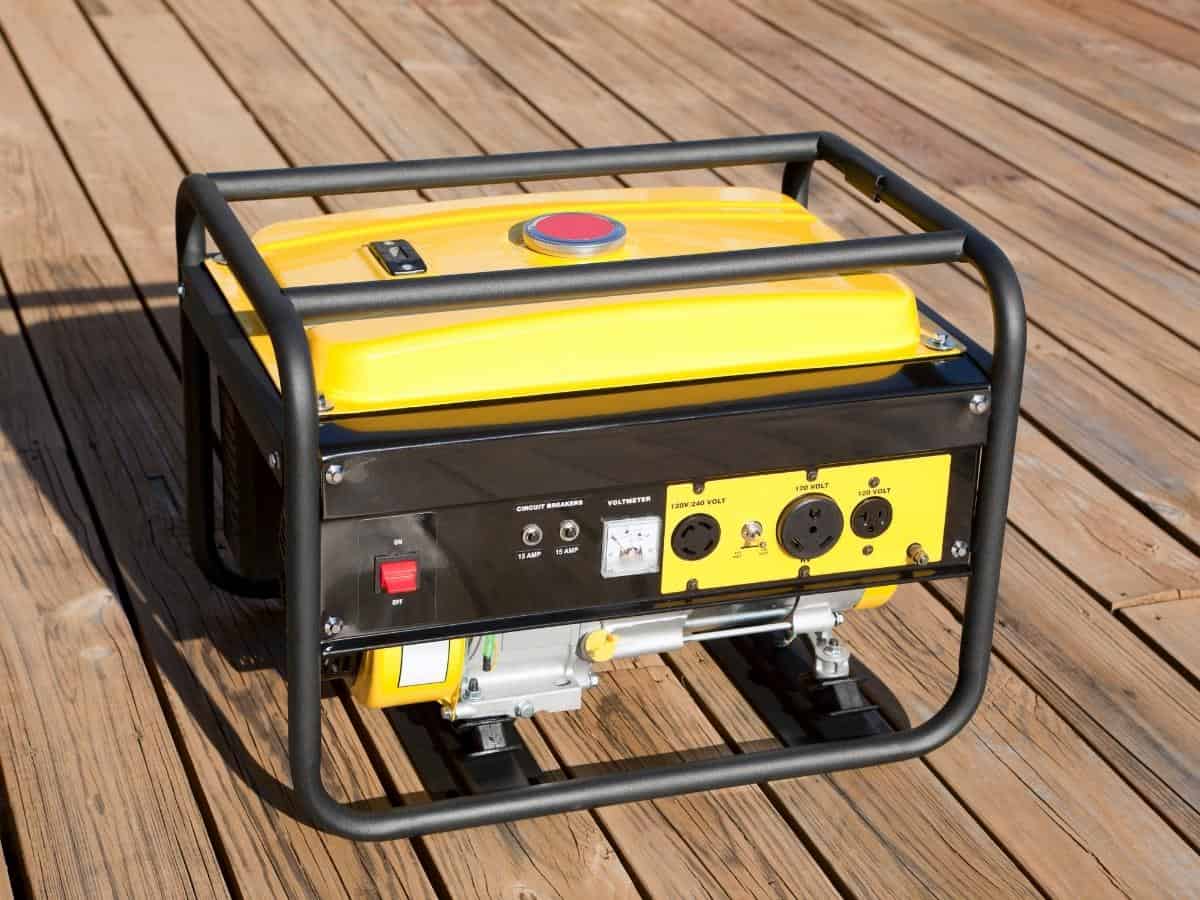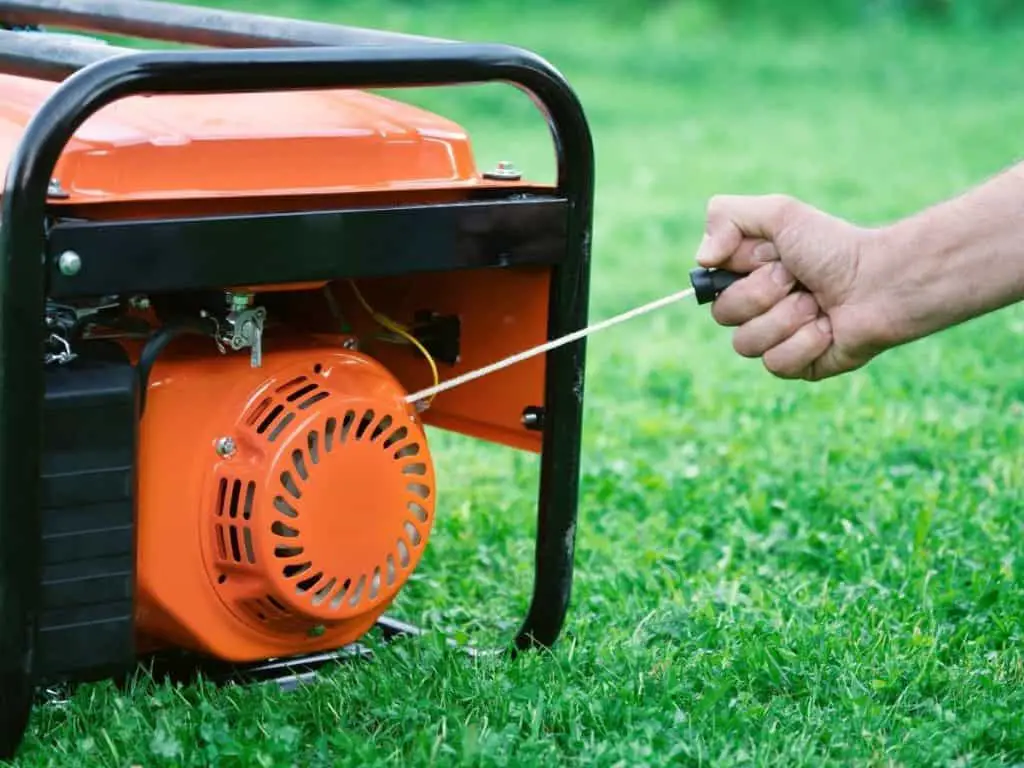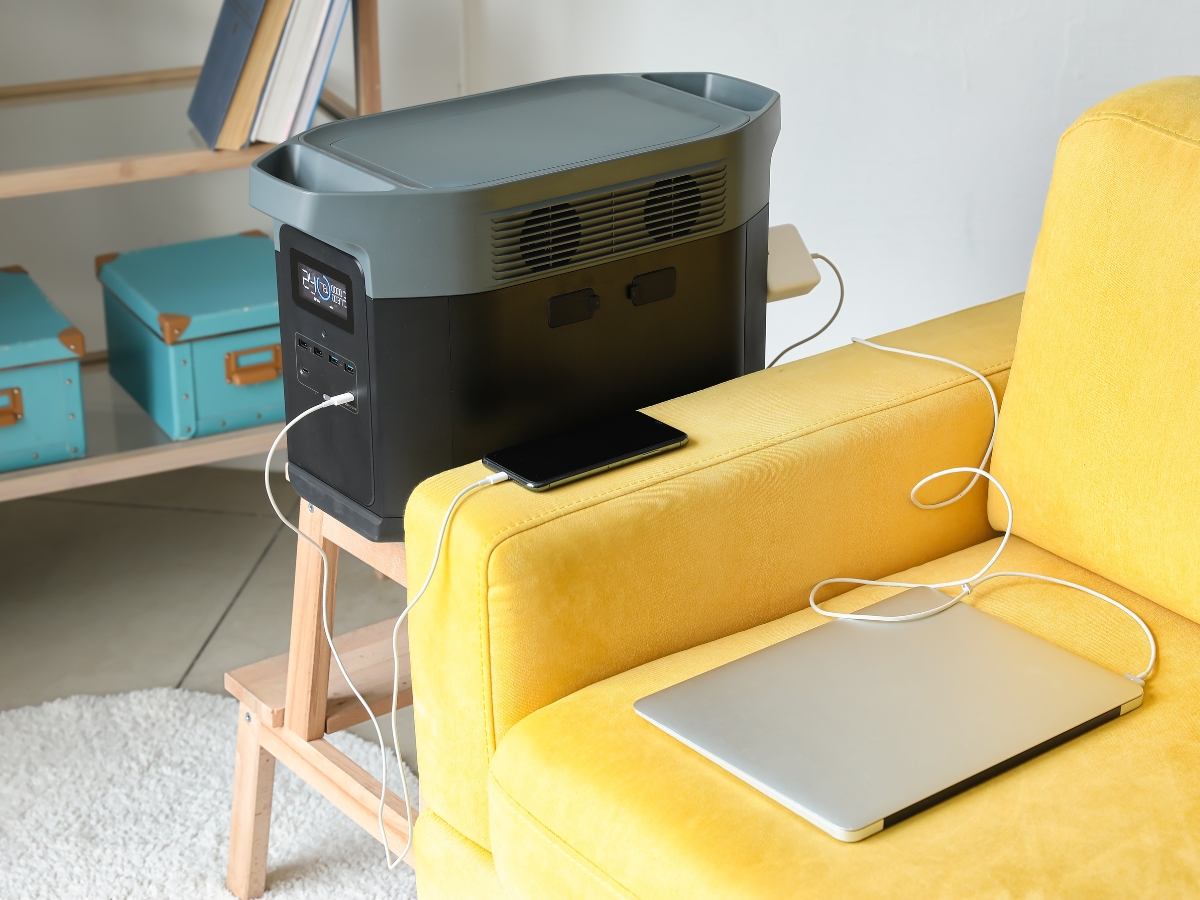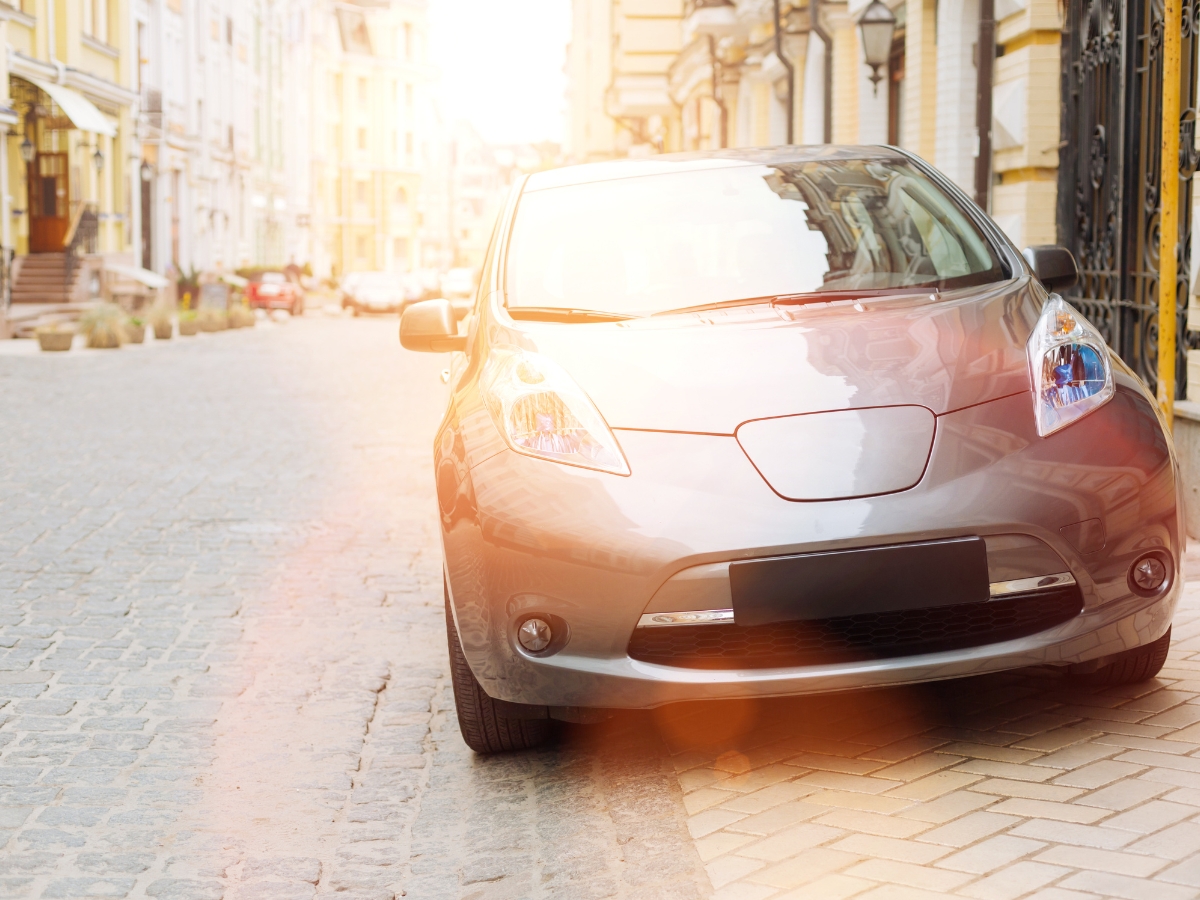Hearing unusual noises coming from your generator is never a good sign. You need to troubleshoot the issue and find a solution.
Why is my generator making popping noises? The most common reason for popping noises is that your generator isn’t getting the right air-fuel mixture. There might not be enough air due to a clogged air filter or not enough fuel because of issues with the fuel intake system or carburetor.
In the following article, we’ll help you solve this problem and discuss additional topics:
- What causes generators to make noise?
- What is backfiring?
- What does it mean when a generator engine knocks?

Why Is My Generator Making Noise?
You might hear different noises coming from your generator. Here’s what they mean:
- Problems with the air-fuel mixture will usually cause popping or sputtering noises.
- A failing part can cause a knocking or grinding noise.
- If you hear sputtering or crackling, there might be an issue with the electrical output.
High-Pitched Noise
A high-pitched noise can come from a lack of lubrication that causes parts to come in contact during operation. You might also be dealing with a failing part or an air leak. Sometimes, a bad fuel pump will also cause a high-pitched noise.
Generator Pops When Trying to Start
Popping noises likely indicate issues with the air-fuel mixture. There are different possible causes:
- The carburetor isn’t delivering the right air-fuel mixture, which results in a slow combustion rate.
- Bad spark plugs ignite the fuel mixture too early in the combustion process.
- A bad intake valve lets fuel mixture into the engine too early in the combustion process.
Noise When A Generator Backfires Through Its Exhaust?
Generators use combustion engines. A fuel intake system delivers an air-fuel mix to the engine where the spark plugs ignite it. The combustion process occurs inside the engine and transmits energy to the piston.
However, there are situations where combustion can happen outside of the engine, resulting in backfiring. Backfiring can produce loud and sudden popping noises.
Is It Normal for a Generator to Backfire?
A generator can backfire for different reasons. If it happens once, it’s no cause for concern. However, if you can’t start your generator without it backfiring, there is a technical issue you need to address since backfiring can damage your generator.
Why Does a Generator Backfire When Turned Off?
It’s not unusual for a generator to backfire when you turn it off since the movement of the pistons can keep drawing fuel toward the engine compartment. You can prevent backfiring by letting your engine idle for a few minutes before turning it off.

How Do You Fix a Backfire on a Generator?
There are a few steps you can follow to pinpoint the source of the issue if you’re dealing with a generator that backfires:
- Check the choke lever. Leaving it on will let too much air into the fuel mixture, resulting in slow combustion and backfiring.
- Clean the air filter. A clogged air filter can restrict airflow and result in a fuel mixture that is too rich. Your engine won’t be able to burn all the fuel in a cycle, resulting in backfiring after the unburned fuel leaves the engine.
- Your generator might be experiencing slow combustion because it’s not getting enough fuel. Check the fuel level, inspect the fuel pump, and look for clogs between the fuel tank and the carburetor.
- A bad carburetor is another possible cause. Your carburetor or the jets that inject fuel into this part can become dirty and clogged, making it difficult to achieve the correct air-fuel mixture ratio. Remove your carburetor and let it soak in a degreaser.
- Inspect the intake valve that lets fuel into the engine compartment. If it’s loose or leaking, it will let fuel in at the wrong moment in the combustion cycle.
- Check your spark plugs. They can become corroded and fail to properly ignite the fuel mix, resulting in leftover fuel that will ignite at the wrong moment.
How to Know If Your Generator Engine Has Knocked?
Knocking sounds result from bad timing in the combustion process. If the engine can’t burn the fuel mixture that enters the piston compartments in a single cycle, there will be a second detonation after the end of the cycle, which results in a loud knocking noise.
How Does a Generator Engine Knock?
If your air-fuel mixture is too lean, combustion will happen at a slower pace. The piston will come back down before the combustion process is over, and what is left of the fuel mixture will create another explosion as the piston goes back up.
However, the intake valve will simultaneously introduce more fuel mixture into the engine for the next cycle. This process will throw off your engine’s timing and can cause damage.
How Do You Fix a Knocking Sound in an Engine?
If you hear a knocking sound coming from your generator, you might assume that the issue comes from the engine. The truth is that the issue is likely coming from the fuel or air intake system:
- Ensure you’re using the fuel the manufacturer recommends and not a cheap alternative.
- Check the fuel tank since running your generator with a low fuel level can produce a lean mixture.
- Keep the fuel intake system clean with a spray cleaner to eliminate the residues that can form when old fuel evaporates. A clogged fuel pump or clogged fuel lines can limit how much fuel your engine is getting and cause slow combustion.
- A clogged carburetor is another common issue. It’s a part you can clean or replace to fix issues with your air-fuel mixture ratio.
These different issues will cause your generator not to get enough fuel. However, you can run into issues with your engine knocking if it’s getting too much air:
- Close the choke lever for a temporary solution since this feature will reduce the airflow.
- Check the intake valve for cracks. A damaged intake valve can create a vacuum leak, and air enters the engine compartment.
- Adjust the air-fuel mixture screws on your carburetor. Loose screws can cause too much air to get in.
What Happens If You Put Too Much Oil in a Generator?
Oil plays an important part because it keeps different moving parts lubricated. However, the oil tank can overflow if you add too much oil to your generator.
Oil will leak and can enter the engine compartment. As oil combusts, it will create smoke, and it can cause the engine to choke and stall since the engine will be burning oil instead of the fuel mixture.
Why Is My Generator Revving Up and Down?
If you hear your engine revving up and down, it’s likely getting an inconsistent air-fuel mixture. It might be low on fuel, or you might not use the correct fuel for your generator.
Generator Noise FAQ
Read on to learn more about unusual noises coming from your generator and how to address this problem.
What is a generator supposed to sound like?
You should hear a constant humming or sputtering coming from your generator. The noise level should be between 50 to 80 dBA, depending on whether you have a model with an enclosure or open frame.
What causes unusual noises in a generator?
Unusual noises usually indicate technical problems. Issues with the air-fuel mixture will cause backfiring noises, but you can also hear grinding noises if a part fails.
What to do if a Generac generator backfires?
The different causes and fixes mentioned above apply to all brands. However, Generac generators seem more likely to get issues linked to dirty and clogged carburetors, so it should be one of the first things you check.
What causes a backfire after turning the engine off?
If you only hear backfires after shutting the engine off, you probably hear combustion from any leftover fuel. You can prevent this type of backfiring by bringing the engine to an idle speed before turning the generator off.
References:
- https://www.energy.gov/eere/vehicles/articles/internal-combustion-engine-basics
- https://www.mcnallyinstitute.com/what-would-cause-a-car-engine-to-backfire-when-starting/
- https://auto.howstuffworks.com/engine-knock.htm




